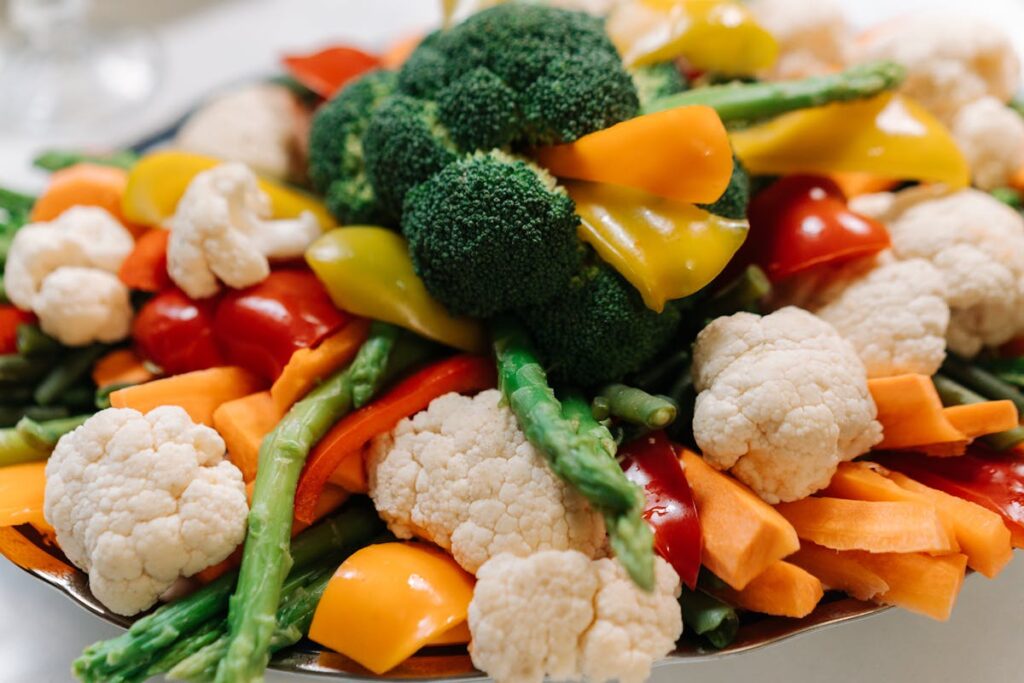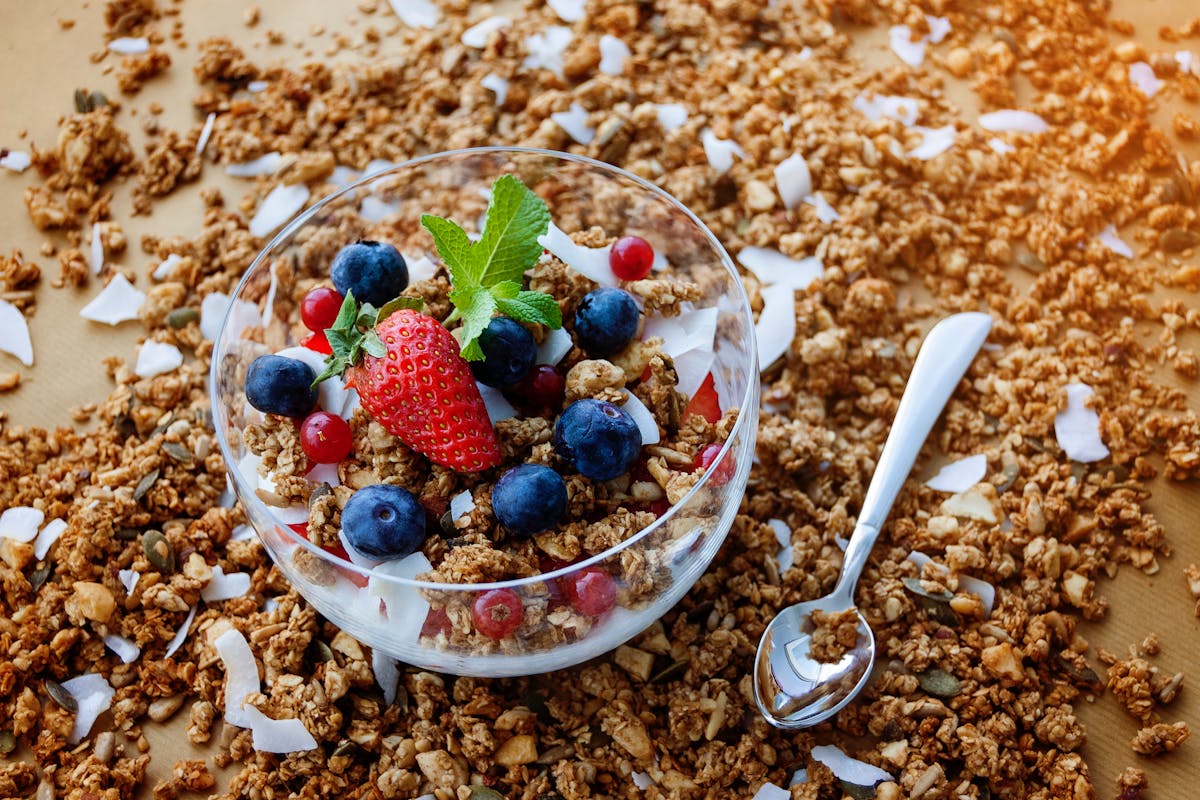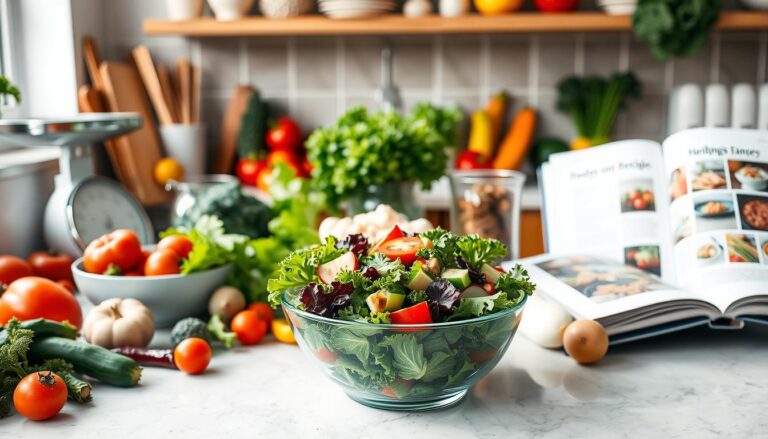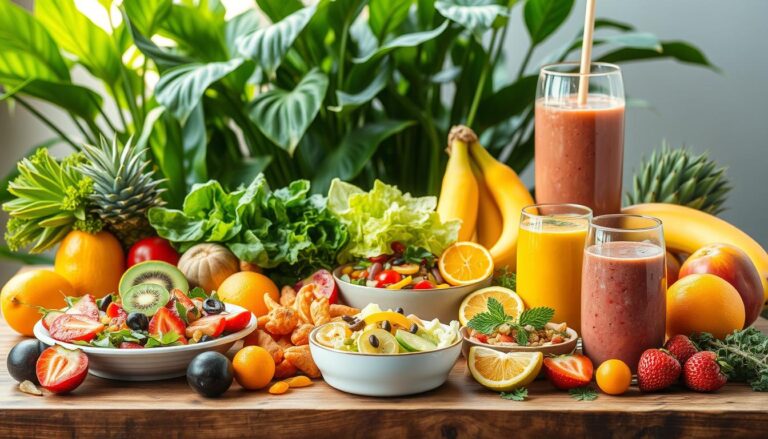Essential Tips for Vegan Bodybuilders
Essential Tips for Vegan Bodybuilders
Discover essential tips for vegan bodybuilding and vegan muscle building. Learn how building muscle as a vegan is achievable with the right vegan diet for muscle building.
Table of Contents
Introduction to Vegan Bodybuilding
Vegan bodybuilding involves building muscle and enhancing physical fitness while adhering to a vegan diet, which excludes all animal products. For many, the commitment to a vegan diet is rooted in ethical, environmental, or health reasons. This commitment can bring unique challenges, particularly when it comes to meeting protein and nutrient needs essential for muscle growth and recovery.
Key Components of Vegan Bodybuilding
- Protein Sources:
- Soy products like tofu, tempeh, and edamame
- Legumes such as lentils, chickpeas, and black beans
- Nuts and seeds, including almonds, chia seeds, and hemp seeds
- Whole grains like quinoa, brown rice, and oatmeal
- Plant-based protein powders derived from sources such as pea, rice, and hemp
- Critical Nutrients:
- Iron: Spinach, lentils, quinoa, fortified cereals
- Vitamin B12: Fortified plant milks, nutritional yeast, supplements
- Calcium: Leafy greens, fortified plant milks, almonds
- Omega-3 Fatty Acids: Flaxseeds, chia seeds, walnuts, algae supplements
- Meal Planning:
- Structured meal plans to ensure adequate caloric intake
- Balanced meals that combine protein, carbohydrates, and fats
- Pre-workout and post-workout nutrition tailored to individual needs
- Training Strategies:
- Progressive overload for continuous muscle growth
- Compound movements: squats, deadlifts, bench presses, and pull-ups
- Rest and recovery periods to maximize muscle repair
- Supplements:
- Protein powders to boost daily protein intake
- Creatine for enhanced strength and performance
- Branched-chain amino acids (BCAAs) for muscle recovery
Additional Considerations Essential Tips for Vegan Bodybuilders
- Hydration:
- Essential for muscle function and recovery
- Consumption of sufficient water throughout the day
- Consultation with Professionals:
- Dietitians for personalized nutrition plans
- Trainers for tailored workout programs
- Community and Support:
- Joining vegan bodybuilding groups
- Sharing experiences and tips with like-minded individuals
Emphasizing the importance of a well-rounded approach, vegan bodybuilding requires thoughtful nutrition planning and strategic training to effectively build muscle without relying on animal products. Following these guidelines can help vegan bodybuilders maximize their potential and achieve their fitness goals.
Benefits of a Plant-Based Diet for Bodybuilding

Adopting a plant-based diet can offer numerous benefits for bodybuilders. This diet focuses on consuming whole, unprocessed plant foods, which can support muscle growth, recovery, and overall health.
- Nutrient Density: Plant-based diets are rich in essential nutrients, including vitamins, minerals, antioxidants, and phytochemicals. These nutrients can enhance muscle repair and recovery, reducing inflammation and oxidative stress.
- Improved Digestion: The high fiber content in plant-based foods aids in better digestion and nutrient absorption. Efficient digestion ensures that the body can effectively utilize the nutrients needed for muscle growth and repair.
- Better Heart Health: Plant-based diets are often associated with lower cholesterol levels and improved cardiovascular health. A healthy heart ensures better blood circulation, delivering oxygen and nutrients to muscles more efficiently.
- Increased Energy Levels: Eating a variety of fruits, vegetables, legumes, nuts, and seeds can provide sustained energy. The complex carbohydrates in plant foods offer a steady release of energy, necessary for intensive workouts and endurance.
- Lower Risk of Chronic Diseases: A plant-based diet can reduce the risk of chronic health conditions such as diabetes, hypertension, and certain cancers. A lower disease risk allows bodybuilders to focus on their training without health setbacks.
- Environmentally Sustainable: Choosing a plant-based diet is not only beneficial for the body but also for the planet. It requires fewer resources and generates less greenhouse gas emissions, promoting environmental sustainability.
- Ethical Considerations: Many bodybuilders choose a plant-based diet for ethical reasons. Avoiding animal products can align with personal values regarding animal welfare and environmental conservation.
Plant-based proteins such as lentils, chickpeas, quinoa, tofu, and tempeh can effectively support muscle growth. These plant proteins contain essential amino acids required for muscle protein synthesis.
In addition, plant-based diets offer flexibility in meal planning. With numerous plant-based protein sources available, bodybuilders can enjoy a variety of delicious and nutritious meals without compromising muscle-building goals.
In summary, a plant-based diet can provide significant benefits for bodybuilders by enhancing nutrient intake, promoting better digestion, improving heart health, and supporting athletic performance, all while being environmentally sustainable and ethically aligned.
Understanding Nutritional Needs
To successfully build muscle as a vegan, it is crucial to have a comprehensive understanding of nutritional needs. Proper nutrition is the cornerstone of muscle growth and recovery.
Protein Intake
Protein is an essential macronutrient for muscle growth. Vegan bodybuilders must focus on acquiring high-quality plant-based proteins.
- Legumes: Include beans, lentils, chickpeas, and peas.
- Nuts and Seeds: Almonds, chia seeds, and flaxseeds are excellent choices.
- Whole Grains: Incorporate quinoa, brown rice, and oats.
- Soy Products: Tofu, tempeh, and edamame offer complete proteins.
Adequate protein intake should be around 1.6 to 2.2 grams per kilogram of body weight daily for optimal muscle growth.
Carbohydrates
Carbohydrates are the primary energy source for workouts. Suitable carb sources keep glycogen levels high, aiding endurance during training sessions.
- Fruits: Bananas, berries, and apples.
- Vegetables: Sweet potatoes, spinach, and broccoli.
- Grains: Whole wheat bread, quinoa, and barley.
A balanced intake of 4 to 7 grams per kilogram of body weight per day is recommended, depending on the intensity of workouts.
Fats
Healthy fats are vital for hormone production and overall health.
- Avocados: Rich in monounsaturated fats.
- Nuts and Seeds: Provide omega-3 fatty acids.
- Olive Oil: Excellent for cooking and dressings.
Fats should comprise 20-35% of total daily calories for muscle maintenance and growth.
Micronutrients
Vegan diets must ensure adequate intake of specific vitamins and minerals.
- Vitamin B12: Often lacking in vegan diets, supplementation is recommended.
- Iron: Sources include lentils, tofu, and fortified cereals.
- Calcium: Found in leafy greens and fortified plant milks.
- Omega-3: Flaxseeds and chia seeds are good sources, or consider algae-based supplements.
Hydration
Staying hydrated is essential for muscle function.
- Water: Aim for at least 3 liters daily.
- Electrolytes: Incorporate coconut water or electrolyte tablets post-workout.
Understanding these nutritional needs helps vegan bodybuilders achieve their muscle-building goals effectively.
Essential Plant-Based Protein Sources

For vegan bodybuilders, incorporating a variety of plant-based protein sources into their diet is crucial for muscle growth and overall health. These proteins not only provide the necessary amino acids but also offer various vitamins, minerals, and fiber. Below are some key plant-based protein sources that can help meet protein requirements effectively.
Legumes
Legumes are versatile and protein-rich, making them a vegan staple.
- Lentils – High in protein and fiber, lentils also contain essential nutrients like iron and folate.
- Chickpeas – These can be used in salads, hummus, and stews, offering a significant protein boost.
- Black Beans – Rich in protein and fiber, black beans are great in various dishes, from soups to rice bowls.
Nuts and Seeds
Nuts and seeds are dense in nutrients and provide healthy fats along with protein.
- Almonds – High in protein, fiber, and healthy fats, almonds also provide vitamin E and magnesium.
- Chia Seeds – These tiny seeds pack a punch, offering protein, omega-3 fatty acids, and fiber.
- Pumpkin Seeds – Rich in protein, iron, and magnesium, pumpkin seeds are perfect for snacks or as salad toppers.
Soy Products
Soy is a complete protein, containing all nine essential amino acids.
- Tofu – Versatile and easy to cook, tofu can be added to most dishes for a protein boost.
- Tempeh – Made from fermented soybeans, tempeh is rich in protein and probiotics, beneficial for gut health.
- Edamame – Young soybeans that are high in protein and can be steamed or added to salads and stir-fries.
Grains and Pseudograins
Grains offer a substantial amount of protein and other nutrients.
- Quinoa – A complete protein, quinoa contains all essential amino acids and is high in fiber and B-vitamins.
- Amaranth – Similar to quinoa, amaranth is a protein-rich pseudograin, offering minerals like calcium, iron, and magnesium.
- Buckwheat – Despite its name, buckwheat is gluten-free and protein-dense, making it ideal for various recipes.
Protein-Rich Vegetables
Certain vegetables can also contribute to daily protein intake.
- Broccoli – In addition to protein, broccoli provides vitamins C and K, aiding in muscle recovery.
- Spinach – High in protein and iron, spinach is excellent in salads, smoothies, or cooked dishes.
- Brussels Sprouts – These contain a surprising amount of protein along with vitamins and minerals essential for overall health.
By integrating these diverse protein sources, vegan bodybuilders can ensure they meet their nutritional needs while building muscle efficiently. Emphasizing variety ensures a rich intake of essential nutrients vital for performance and recovery.
Meal Planning and Preparation
Effective meal planning and preparation are crucial for vegan bodybuilders to ensure they meet their nutritional needs and promote muscle growth. By organizing meals and snacks ahead of time, they can ensure they are consuming adequate protein, calories, and nutrients to support their fitness goals. Here are some key strategies to consider:
- Macronutrient Balance:
Ensuring a balance of macronutrients—proteins, fats, and carbohydrates—is essential. Carbohydrates provide the energy needed for intense workouts, fats support hormone production, and proteins are necessary for muscle repair and growth. Focus on:- High-Protein Sources: Tofu, tempeh, seitan, legumes (beans, lentils, chickpeas), edamame, quinoa, and plant-based protein powders.
- Healthy Fats: Avocados, nuts, seeds (chia, flax, hemp), olive oil, and coconut oil.
- Complex Carbohydrates: Whole grains (brown rice, oats, whole-wheat pasta), sweet potatoes, and vegetables.
- Nutrient Timing:
Consuming the right nutrients at the right times can enhance performance and recovery. Prioritize:- Pre-Workout Nutrition: A balanced meal with carbohydrates and some protein 2-3 hours before working out. For example, a bowl of oatmeal with fruit and a sprinkle of nuts or seeds.
- Post-Workout Nutrition: A meal high in protein and carbs within 30-60 minutes after exercising. A smoothie with plant-based protein powder, banana, and spinach is a convenient option.
- Meal Prep Techniques:
Planning and preparing meals in advance saves time and ensures consistency in diet. Some effective techniques include:- Batch Cooking: Prepare large quantities of staples like grains, legumes, and roasted vegetables to use throughout the week.
- Pre-portioning Meals: Divide cooked meals into individual containers, making it easy to grab a balanced meal on-the-go.
- Freezing: Freeze portions of meals for days when there is less time to cook.
- Supplementation:
While a well-planned vegan diet can meet most nutritional needs, supplements can help fill any gaps:- Protein: Plant-based protein powders (e.g., pea, hemp, rice) can help achieve protein targets, especially on busy days.
- B12: Not available in plant foods, a B12 supplement is essential.
- Omega-3s: Algal oil supplements provide DHA and EPA, which are crucial for heart and brain health.
By applying these meal planning and preparation techniques, vegan bodybuilders can achieve their muscle-building goals while ensuring a balanced, nutrient-rich diet.
Supplementing a Vegan Diet

Vegan bodybuilders must pay close attention to their nutrient intake to ensure they meet their dietary needs for muscle growth. Supplementation can play a critical role in achieving these nutritional goals. Here are some key supplements to consider:
Protein Supplements
- Pea Protein: Derived from yellow split peas, this protein is easy to digest and contains all nine essential amino acids.
- Soy Protein: A complete protein with a high biological value, supporting muscle repair and growth.
- Hemp Protein: Provides not only protein but also omega-3 and omega-6 fatty acids.
- Rice Protein: Contains all essential amino acids but in varying quantities. It’s often combined with other protein sources.
Branched-Chain Amino Acids (BCAAs)
BCAAs, including leucine, isoleucine, and valine, are crucial for muscle recovery and growth. They can be particularly beneficial for vegan athletes who may struggle to get enough BCAAs through diet alone.
Creatine
Creatine is known to enhance strength, increase lean muscle mass, and aid muscle recovery during exercise. Vegan-friendly creatine monohydrate supplements can be a great addition to a muscle-building regimen.
Vitamin B12
Vitamin B12 is vital for energy production and red blood cell formation. Since it is not typically found in plant foods, a B12 supplement is essential for those on a vegan diet.
Vitamin D
Vitamin D supports bone health and muscle function. Vegan bodybuilders should consider a vitamin D2 or D3 supplement, especially those who have limited sun exposure.
Omega-3 Fatty Acids
Omega-3s help reduce inflammation and support heart health. Algal oil supplements are a sustainable, plant-based source of EPA and DHA, the essential omega-3 fatty acids.
Iron
Iron helps transport oxygen in the blood, enhancing endurance and strength. Vegans can consider iron supplements derived from plants, especially if they struggle to meet their iron needs through diet.
Zinc
Zinc supports immune function and protein synthesis, which is vital for muscle repair. Plant-based zinc supplements or foods that are fortified with zinc can maintain adequate levels.
By incorporating these key supplements, vegan bodybuilders can help ensure they meet their nutritional needs for optimal muscle growth and overall health.
Creating an Effective Workout Routine
An effective workout routine is essential for vegan bodybuilders aiming to build muscle. Tailoring the routine to specific fitness goals ensures optimal results.
Understanding Workout Components
Every effective workout routine should include:
- Resistance Training: Use free weights, machines, or bodyweight exercises to target different muscle groups.
- Cardio: Incorporate cardiovascular exercises to improve overall endurance and heart health.
- Flexibility and Mobility: Stretching exercises to enhance range of motion and prevent injuries.
Structuring Workout Sessions
To create a balanced routine, consider the following elements:
- Frequency: Train each muscle group at least twice a week.
- Intensity: Gradually increase weights and resistance to challenge the muscles.
- Duration: Aim for 45-60 minutes per workout session.
- Rest: Ensure sufficient rest between sessions to allow muscle recovery.
Sample Weekly Routine
A balanced weekly workout routine might look like:
Monday: Upper Body
- Push-ups
- Bench Press
- Dumbbell Flyes
- Shoulder Press
Tuesday: Lower Body
- Squats
- Lunges
- Leg Press
- Calf Raises
Wednesday: Rest or Light Cardio
- Light jogging or swimming
Thursday: Back and Core
- Pull-ups
- Deadlifts
- Rows
- Planks
Friday: Legs and Glutes
- Deadlifts
- Hamstring Curls
- Glute Bridges
- Step-Ups
Saturday: Full Body or Cardio
- Circuit training with a mix of upper and lower body exercises
- High-intensity interval training (HIIT)
Sunday: Rest
- Complete rest or engage in gentle stretching
Tips for Success
- Consistency: Stick to the routine consistently for gradual improvement.
- Quality over Quantity: Focus on proper form to avoid injuries and maximize muscle engagement.
- Progressive Overload: Gradually increase workout intensity by adding weights or increasing reps.
Tracking Progress
Use a workout log to monitor progress. Record:
- Exercises performed
- Weights used
- Sets and reps completed
- Personal notes on workout difficulty or muscle soreness
This logging will help identify areas needing improvement and track gains over time.
By adhering to these guidelines, vegan bodybuilders can create an effective workout routine that supports muscle growth and overall fitness. This structured approach ensures that all muscle groups are adequately worked and given time to recover, which is crucial for anyone on a plant-based diet aiming to build muscle effectively.
Overcoming Common Challenges
One of the most significant challenges vegan bodybuilders face is ensuring adequate protein intake. Plant-based proteins differ from animal-based proteins; therefore, more variety may be needed to meet dietary requirements.
Protein Sources
- Legumes: Beans, lentils, and chickpeas are excellent sources of protein.
- Nuts and Seeds: Almonds, chia seeds, and hemp seeds offer both protein and healthy fats.
- Plant-based Protein Powders: Pea protein, hemp protein, and soy protein powders can help meet daily protein targets.
Meal Planning
Planning meals can be tricky without proper guidance. A well-constructed meal plan that includes a balance of macronutrients is crucial for muscle growth. Ensuring that the diet includes a variety of protein sources helps to meet amino acid needs.
- Breakfast: Overnight oats with chia seeds, berries, and almond milk.
- Lunch: Quinoa salad with black beans, avocado, and mixed greens.
- Dinner: Tofu stir-fry with vegetables and brown rice.
- Snacks: Protein bars, hummus with carrots, and mixed nuts.
Nutrient Deficiencies
Vegans may be at risk for certain nutrient deficiencies, including Vitamin B12, Iron, Omega-3 fatty acids, and Zinc.
- Vitamin B12: Found in fortified foods like plant milks, breakfast cereals, and nutritional yeast.
- Iron: Lentils, chickpeas, pumpkin seeds, and spinach are rich in iron. Consuming these with Vitamin C-rich foods increases absorption.
- Omega-3 Fatty Acids: Chia seeds, flaxseeds, and walnuts provide this essential nutrient. Adding algae-based supplements can also help.
- Zinc: Whole grains, tofu, and tempeh are good sources of zinc. Zinc absorption is improved by soaking and sprouting beans and grains.
Muscle Recovery
Ensuring muscle recovery through adequate rest and proper nutrition is vital. Vegan athletes should focus on nutrient timing and the inclusion of anti-inflammatory foods.
- Post-Workout Nutrition: Smoothies with plant-based protein powder, banana, spinach, and almond butter help replenish glycogen and repair muscles.
- Hydration: Water-rich fruits like watermelon and consuming adequate water throughout the day are important.
Proper planning can mitigate these challenges and support muscle-building endeavors effectively.
Success Stories and Case Studies
Patrik Baboumian: The Strongman
Patrik Baboumian, a world record-holding strongman, shifted to a vegan diet to improve his health and strength. By focusing on a balanced diet rich in lentils, beans, tofu, and nuts, Baboumian managed to not only maintain his muscle mass but significantly enhance his strength. He set a world record in the yoke walk, carrying 1,216 lbs over 10 meters.
Torre Washington: The Shredded Bodybuilder
Torre Washington turned vegan in 1998 and has since built an impressive physique through natural bodybuilding. His diet consists of:
- Protein Sources: Seitan, tempeh, lentils, and chickpeas
- Carbohydrate Sources: Quinoa, sweet potatoes, and rice
- Healthy Fats: Avocados, nuts, and seeds Washington’s strict adherence to a whole-food, plant-based diet has earned him several bodybuilding titles and a well-defined, muscular build.
Nimai Delgado: The Pro Bodybuilder
Nimai Delgado, raised vegetarian and later transitioning to veganism, has proved that building muscle on a vegan diet is entirely possible. His diet staples include:
- Breakfast: Smoothies with plant-based protein powder, greens, and fruits
- Lunch: Large salads with quinoa, tofu, and a variety of vegetables
- Dinner: Pasta with lentil Bolognese or stir-fried tofu with brown rice and broccoli Delgado’s balanced approach ensures he meets all his nutritional needs while excelling in professional bodybuilding competitions.
Hulda B. Waage: The Vegan CrossFit Athlete
Icelandic CrossFit athlete Hulda B. Waage highlights the versatility and power of a vegan diet in high-intensity sports. Hulda’s go-to meals include:
- Pre-Workout: Oatmeal with almond butter and banana
- Post-Workout: Smoothie with spinach, protein powder, and flaxseeds
- Dinner: Vegan chili with mixed beans, tomatoes, and spices Waage’s success underscores the effectiveness of plant-based diets in fueling demanding training regimens.
Korin Sutton: The Transformation Coach
Korin Sutton, a vegan bodybuilder and personal trainer, transformed his health and physique by adopting a plant-based diet. His key components are:
- Balanced Meals: Combining proteins, carbs, and fats from whole plant foods
- Supplements: Incorporating B12, vitamin D, and omega-3s Sutton’s personal transformation and his clients’ results emphasize the viability of veganism for muscle growth and overall fitness.
Frequently Asked Questions
Is it possible to build muscle on a vegan diet?
Yes, it is possible to build muscle on a vegan diet. Adequate protein intake, on-spot nutrition timing, and regular resistance training play crucial roles in muscle growth.
What are the best vegan protein sources?
Some of the best vegan protein sources include:
- Lentils
- Chickpeas
- Quinoa
- Tofu
- Tempeh
- Black beans
- Seitan
- Edamame
How much protein should a vegan bodybuilder consume?
A vegan bodybuilder should aim to consume 0.7 to 1 gram of protein per pound of body weight daily. This can vary based on individual needs and specific fitness goals.
Do I need supplements as a vegan bodybuilder?
While a well-planned vegan diet can provide essential nutrients, some bodybuilders may find it beneficial to supplement:
- Vitamin B12
- Vitamin D
- Omega-3 fatty acids
- Protein powders such as pea or hemp protein
- Branched-chain amino acids (BCAAs)
How can I ensure I’m getting enough calories?
Ensure sufficient calorie intake by incorporating calorie-dense foods such as nuts, seeds, avocados, and whole grains. Monitoring caloric intake and adjusting meal portions is essential for muscle growth.
What are the benefits of a vegan diet for bodybuilding?
Benefits of a vegan diet for bodybuilding include improved digestion, enhanced recovery times, better heart health, and reduced inflammation, all contributing to more effective workouts.
How do I manage my macros on a vegan diet?
Managing macros involves:
- Calculating daily caloric needs
- Setting macronutrient ratios (typically 20-30% protein, 40-60% carbohydrates, and 10-30% fats)
- Tracking food intake using apps or journals
- Adjusting ratios based on progress and performance
Are there any common mistakes to avoid?
Common mistakes to avoid include:
- Not consuming enough protein
- Overlooking calorie intake
- Neglecting to supplement essential nutrients, such as B12
- Failing to hydrate adequately
Can vegan bodybuilders compete on a professional level?
Yes, vegan bodybuilders can compete on a professional level. Many have achieved significant success in competitions, demonstrating that a vegan diet can support high-performance bodybuilding.
How should I plan my pre-and post-workout nutrition?
Plan pre-workout nutrition by consuming a balanced meal with carbohydrates, fats, and proteins 1-2 hours before exercising. Focus on post-workout meals with a 3:1 ratio of carbohydrates to protein to promote muscle recovery.
What should I do if I hit a plateau?
If hitting a plateau:
- Reassess your workout routine and introduce variety
- Review diet and adjust macronutrient intake
- Ensure adequate rest and recovery
- Consider consulting with a nutritionist or a fitness coach


